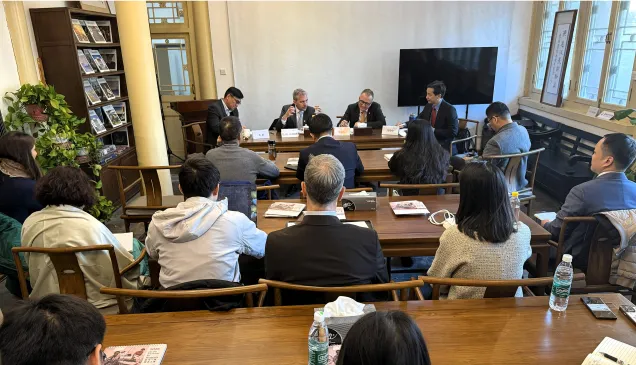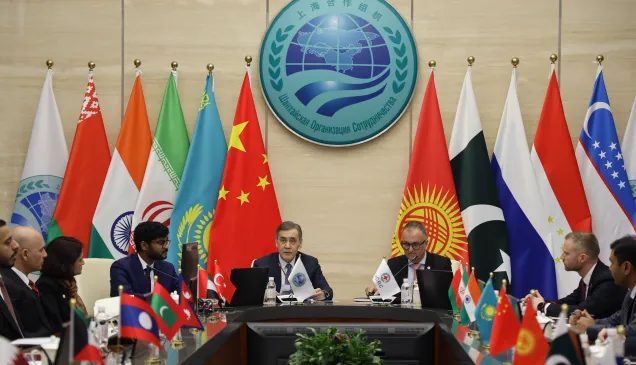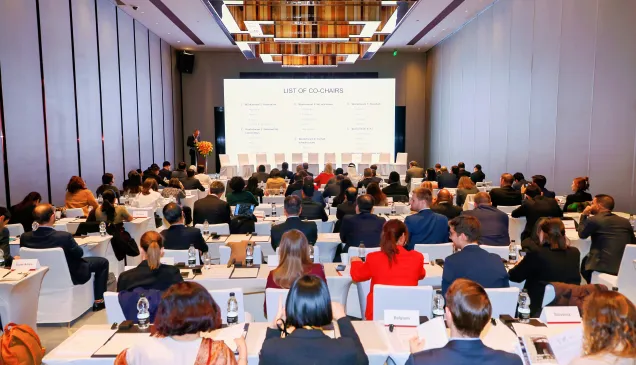Hong Kong: Competition brings humanitarian law to life for students
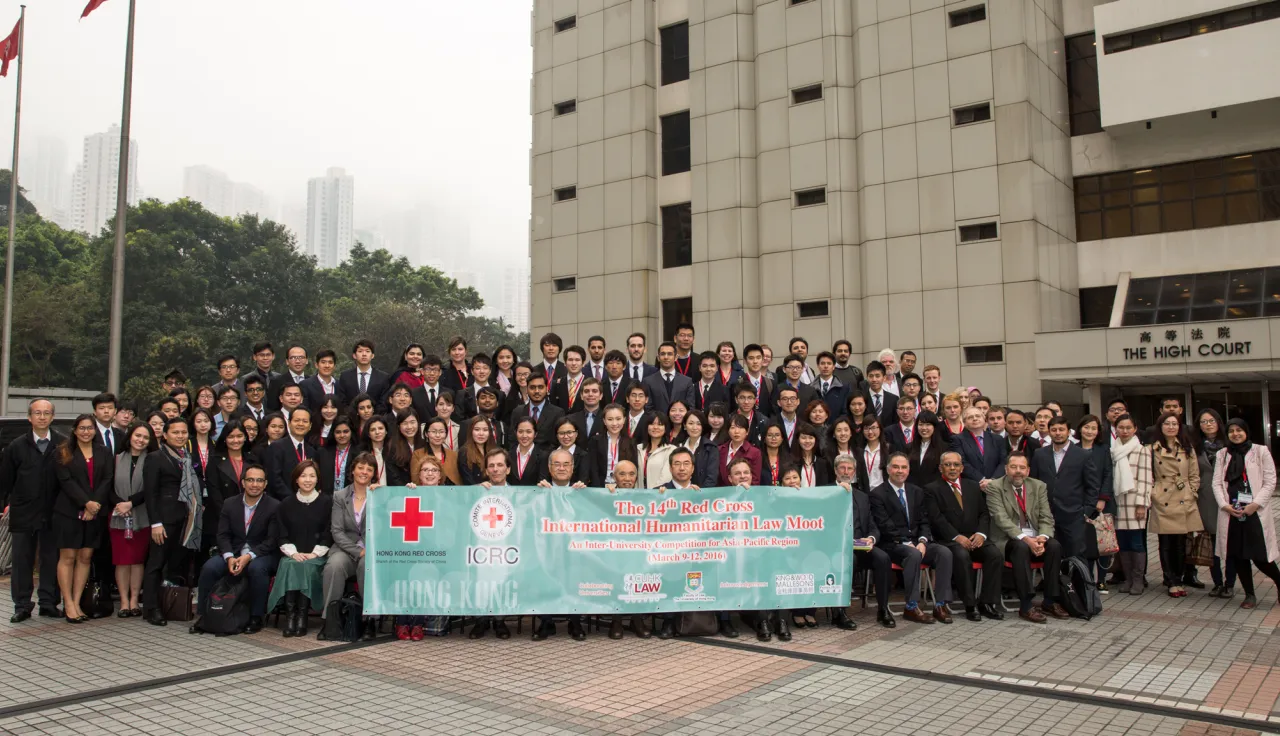
Students from across the Asia Pacific region recently competed in the 14th international humanitarian law moot court competition, held in Hong Kong. The 24 teams comprised 72 students from 21 countries who spent many hours arguing, explaining and answering tough questions on IHL. Team Singapore made the finals of the competition and Team Malaysia made it to the semifinals after many grueling rounds.
"We pushed ourselves to the limit, knowing that we were representing not only our university but also our country," said Yew Yi Lim of Universiti Malaya. "We didn't expect to reach the semifinals." The Malaysian team of Yew Yi Lim, Sitti Nahijah, Lisa Natasha and Vinodhan Kuppusamy won the Best Prosecution Memorial Award.
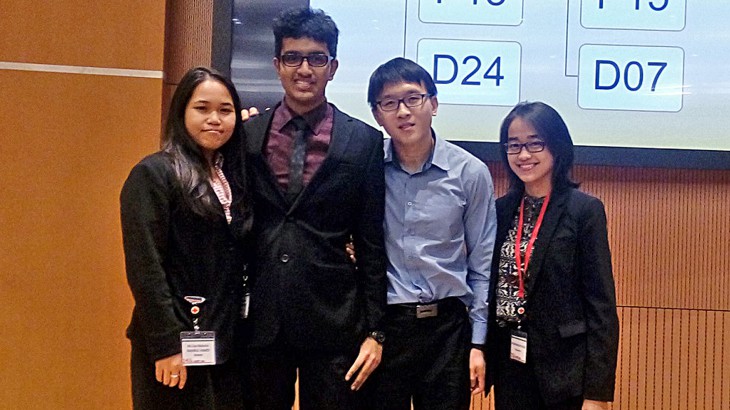
Lisa Natasha binti Fakhrul Hamdi, Vinodhan Kuppusamy, Yew Yi Lim and Sitti Nahijah binti Md Rusli from Universiti Malaya. CC BY-NC-ND / ICRC / Miriam Shastri
Tracy Gani, Karl Tan, Lyndon Choo and Yi Siong from Singapore Management University started the competition as underdogs and were extremely pleased with their performance. Lyndon, a second year law student, described his five days at the competition as 'exhilarating' and explained: "The competition has seen us develop our advocacy skills to a new level. We've gained a better understanding of the rules of war and the crisis that people in war face."

Karl Tan, Lyndon Choo, Tracy Gani, and Yi Siong from Singaporean Management University. © Hong Kong Red Cross
Kelisiana Thynne, the ICRC's legal advisor for the Asia Pacific region, thought the standard was particularly high this year. "Even in the general rounds, judges were hard-pressed to decide who would win," she told us. "I judged Singapore against Iran in the semi-finals and both teams were excellent. Singapore just demonstrated more flexibility and humour in their arguments. They really understood why they were there and what they were aiming to achieve as defence counsel."
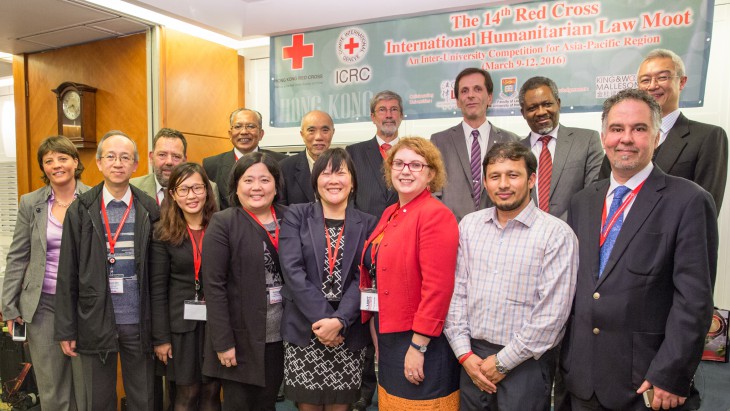
Semi-final judges and organizing committee. © Hong Kong Red Cross
The moot problem this year centered on a fictitious head of State charged with multiple war crimes including genocide, attacks against hospitals and the use of autonomous armed robots.
Despite the fierce competition, there was also time for play. One day was dedicated to a role-playing contest. Students played the part of ICRC delegates persuading a government to let them bring in humanitarian assistance. At the new Hong Kong Red Cross simulation facilities, the students tried their hand at clearing landmines, building hospital tents and reuniting children separated from their parents. All of these activities are linked to the rules of IHL that they used in their moot arguments. "The students really got an all-around humanitarian law experience with a sense of IHL in practice this year," explained Kelisiana.
As the students came to appreciate the purpose of IHL in minimizing suffering, they also gained an insight into the harsh reality of providing humanitarian assistance. IHL is only effective if people comply with it. "Criminal courts like the International Criminal Court can only punish those who have violated IHL after the event, after the harm to civilians has already been done," remarked Lyndon Choo.
The Moot Court Competition inculcates a better understanding of the rules of IHL in students. Events like these bring IHL alive for the students as they role play and argue. "We got to better appreciate the underlying rationale of the law and its dynamic, ever-evolving nature, which makes IHL a subject worth exploring," said Yew Yi Lim of Team Malaysia. "If the true purpose of the Moot Court competition was to develop a passion for IHL among law students, it succeeded."

